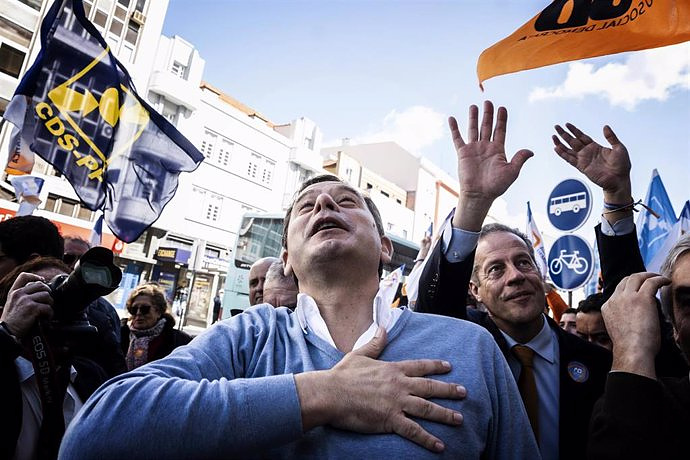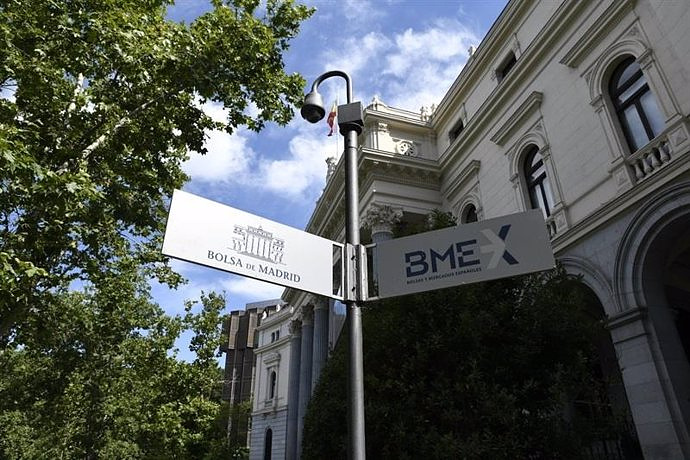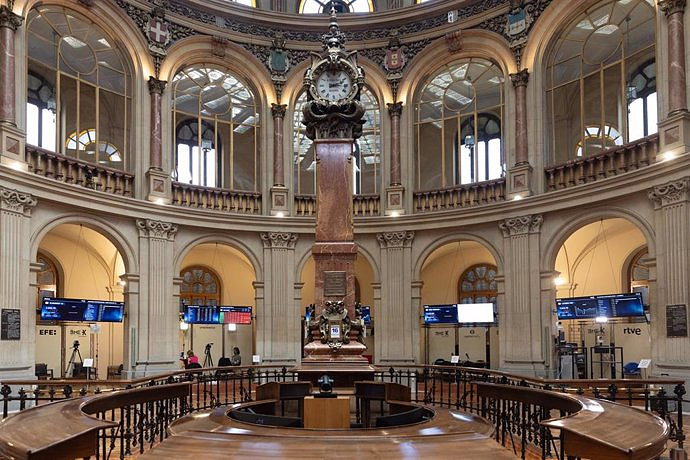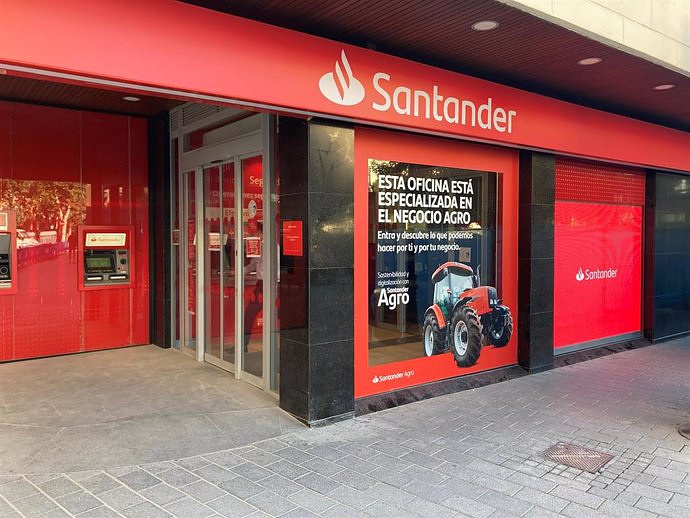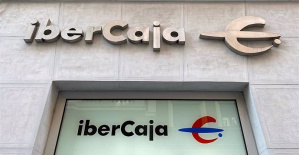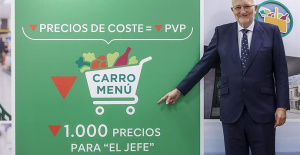MADRID, 11 Mar. (EUROPA PRESS) -
Portugal has turned to the right in these last elections. Waiting for the vote abroad to confirm the pyrrhic victory of the Democratic Alliance (AD), with the socialists already declaring that they are opposition, the great winner of the night has been the extreme right of Chega, which celebrates having broken the two-party system and requires negotiating to form a government.
This Sunday's elections seem far from guaranteeing that "stability" for which the president of Portugal, Marcelo Rebelo de Sousa, decided to call them early after the surprise resignation of António Costa due to a corruption case that he wrongly pointed out to him.
Hostage of his campaign promises, the leader of AD, Luís Montenegro, denied on several occasions that he would agree with Chega to obtain the keys to the São Bento Palace and has once again appealed during the last election night to the responsibility of the rest of the political formations to ensure governance.
Based on this premise of rejection of the extreme right, although it is not excluded from the dialogue that it wants to maintain with all political forces, there would not be a parliamentary majority capable of generating a government in the long term.
It will not be until March 20 when the results of the foreign vote are known. Until then, doubts will remain in a Montenegro that, despite being convinced that he will be the next prime minister, has not yet given details of possible governance alternatives.
André Ventura, head of Chega, has also appealed to the duty that Montenegro should have with the "clear majority" that the conservative forces have achieved in these legislative elections and has warned that it would be irresponsible not to reach an agreement.
With the power that comes from having been the third most supported force in these elections, and one of the two, together with the minority Livre, that has obtained the most votes compared to the previous ones, Ventura has reproached Montenegro for its campaign promise that closes its doors. doors of a government, in which he insists on being.
The extreme right has the key to governability, whether or not it enters a hypothetical government and Ventura knows the situation in which Montenegro finds itself, who would have difficulty politically explaining his change of opinion.
The other possible scenario is a hypothetical conservative coalition with the Liberal Initiative, the fourth most voted force with just over 5 percent of the votes. Its leader, Rui Rocha, has promised that they will be "responsible" in all those scenarios that arise during the following days.
Rarely has a rise like that of Chega been seen in the history of Portuguese democracy, which as the third most voted force has grown dizzyingly to triple the number of votes in these latest legislative elections.
Ventura has been a few votes away from achieving the feat achieved in 1979 by the communist Álvaro Cunhal, who led the United People's Alliance coalition in what were the third elections after the Carnation Revolution.
Chega has achieved 1.1 million votes in these elections, which means 18.1 percent of the total and 48 deputies - one more than those achieved by Cunhal in 1979 -, compared to the 12 he obtained in 2022, thus being one of the forces of the European extreme right that has grown the most parliamentaryly.
While waiting to know the results abroad, barely 1 percent separates the AD and the Socialist Party (PS). Although this last formation has publicly assumed its opposition status for the coming years, the parties further to the left still cling to the possibility of agreeing to govern.
In the event that Chega continues to be ostracized by the rest of the formations, the coalition of socialists and the rest of the forces on the left plus the animalists would obtain 91 deputies, four more than those that would form the AD and the liberals, but far from of the majority granted by 116 deputies.
However, the general secretary of the socialists, Pedro Nuno Santos, already enforced his campaign promises last election night, in case of defeat, not to hinder a possible conservative government as long as he did not resort to Chega.
The hypothesis of a new kind of 'geringonça' like the one that allowed António Costa to govern in 2015 is more of a desire outside the socialist ranks than a possible certainty, since this, according to Santos, would be a call to the forces of right to join.

 Exploring Cardano: Inner Workings and Advantages of this Cryptocurrency
Exploring Cardano: Inner Workings and Advantages of this Cryptocurrency Seville.- Economy.- Innova.- STSA inaugurates its new painting and sealing hangar in San Pablo, for 18 million
Seville.- Economy.- Innova.- STSA inaugurates its new painting and sealing hangar in San Pablo, for 18 million Innova.- More than 300 volunteers join the Andalucía Compromiso Digital network in one month to facilitate access to ICT
Innova.- More than 300 volunteers join the Andalucía Compromiso Digital network in one month to facilitate access to ICT Innova.-AMP.- Ayesa acquires 51% of Sadiel, which will create new technological engineering products and expand markets
Innova.-AMP.- Ayesa acquires 51% of Sadiel, which will create new technological engineering products and expand markets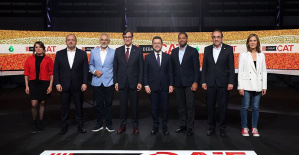 Illa does not clarify whether he will agree with Junts and Aragonès and Rull face a lack of unity
Illa does not clarify whether he will agree with Junts and Aragonès and Rull face a lack of unity At least twelve Palestinians die in Israeli bombings against Rafah
At least twelve Palestinians die in Israeli bombings against Rafah Gaza War | Direct: The Israeli Army takes the Palestinian part of the Rafah crossing
Gaza War | Direct: The Israeli Army takes the Palestinian part of the Rafah crossing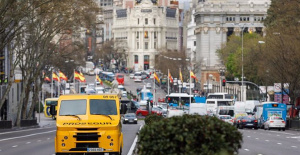 Prosegur Cash will distribute the first payment of its total dividend of 0.0404 euros on May 14
Prosegur Cash will distribute the first payment of its total dividend of 0.0404 euros on May 14 How Blockchain in being used to shape the future
How Blockchain in being used to shape the future Not just BTC and ETH: Here Are Some More Interesting Coins Worth Focusing on
Not just BTC and ETH: Here Are Some More Interesting Coins Worth Focusing on UMH researchers are working on a high-quality apricot crop that requires less irrigation water
UMH researchers are working on a high-quality apricot crop that requires less irrigation water The UPV develops an application to improve the quality of life of patients with glioblastoma
The UPV develops an application to improve the quality of life of patients with glioblastoma A sensor system obtains the fingerprint of essential oils and detects if they have been adulterated
A sensor system obtains the fingerprint of essential oils and detects if they have been adulterated Faraday UPV presents the 'Origin' rocket to exceed 10 km of flight: "It is the beginning of the journey to space"
Faraday UPV presents the 'Origin' rocket to exceed 10 km of flight: "It is the beginning of the journey to space" A million people demonstrate in France against Macron's pension reform
A million people demonstrate in France against Macron's pension reform Russia launches several missiles against "critical infrastructure" in the city of Zaporizhia
Russia launches several missiles against "critical infrastructure" in the city of Zaporizhia A "procession" remembers the dead of the Calabria shipwreck as bodies continue to wash up on the shore
A "procession" remembers the dead of the Calabria shipwreck as bodies continue to wash up on the shore Prison sentences handed down for three prominent Hong Kong pro-democracy activists
Prison sentences handed down for three prominent Hong Kong pro-democracy activists ETH continues to leave trading platforms, Ethereum balance on exchanges lowest in 3 years
ETH continues to leave trading platforms, Ethereum balance on exchanges lowest in 3 years Investors invest $450 million in Consensys, Ethereum incubator now valued at $7 billion
Investors invest $450 million in Consensys, Ethereum incubator now valued at $7 billion Alchemy Integrates Ethereum L2 Product Starknet to Enhance Web3 Scalability at a Price 100x Lower Than L1 Fees
Alchemy Integrates Ethereum L2 Product Starknet to Enhance Web3 Scalability at a Price 100x Lower Than L1 Fees Mining Report: Bitcoin's Electricity Consumption Declines by 25% in Q1 2022
Mining Report: Bitcoin's Electricity Consumption Declines by 25% in Q1 2022 Oil-to-Bitcoin Mining Firm Crusoe Energy Systems Raised $505 Million
Oil-to-Bitcoin Mining Firm Crusoe Energy Systems Raised $505 Million Microbt reveals the latest Bitcoin mining rigs -- Machines produce up to 126 TH/s with custom 5nm chip design
Microbt reveals the latest Bitcoin mining rigs -- Machines produce up to 126 TH/s with custom 5nm chip design Bitcoin's Mining Difficulty Hits a Lifetime High, With More Than 90% of BTC Supply Issued
Bitcoin's Mining Difficulty Hits a Lifetime High, With More Than 90% of BTC Supply Issued The Biggest Movers are Near, EOS, and RUNE during Friday's Selloff
The Biggest Movers are Near, EOS, and RUNE during Friday's Selloff Global Markets Spooked by a Hawkish Fed and Covid, Stocks and Crypto Gain After Musk Buys Twitter
Global Markets Spooked by a Hawkish Fed and Covid, Stocks and Crypto Gain After Musk Buys Twitter Bitso to offset carbon emissions from the Trading Platform's ERC20, ETH, and BTC Transactions
Bitso to offset carbon emissions from the Trading Platform's ERC20, ETH, and BTC Transactions Draftkings Announces 2022 College Hoops NFT Selection for March Madness
Draftkings Announces 2022 College Hoops NFT Selection for March Madness